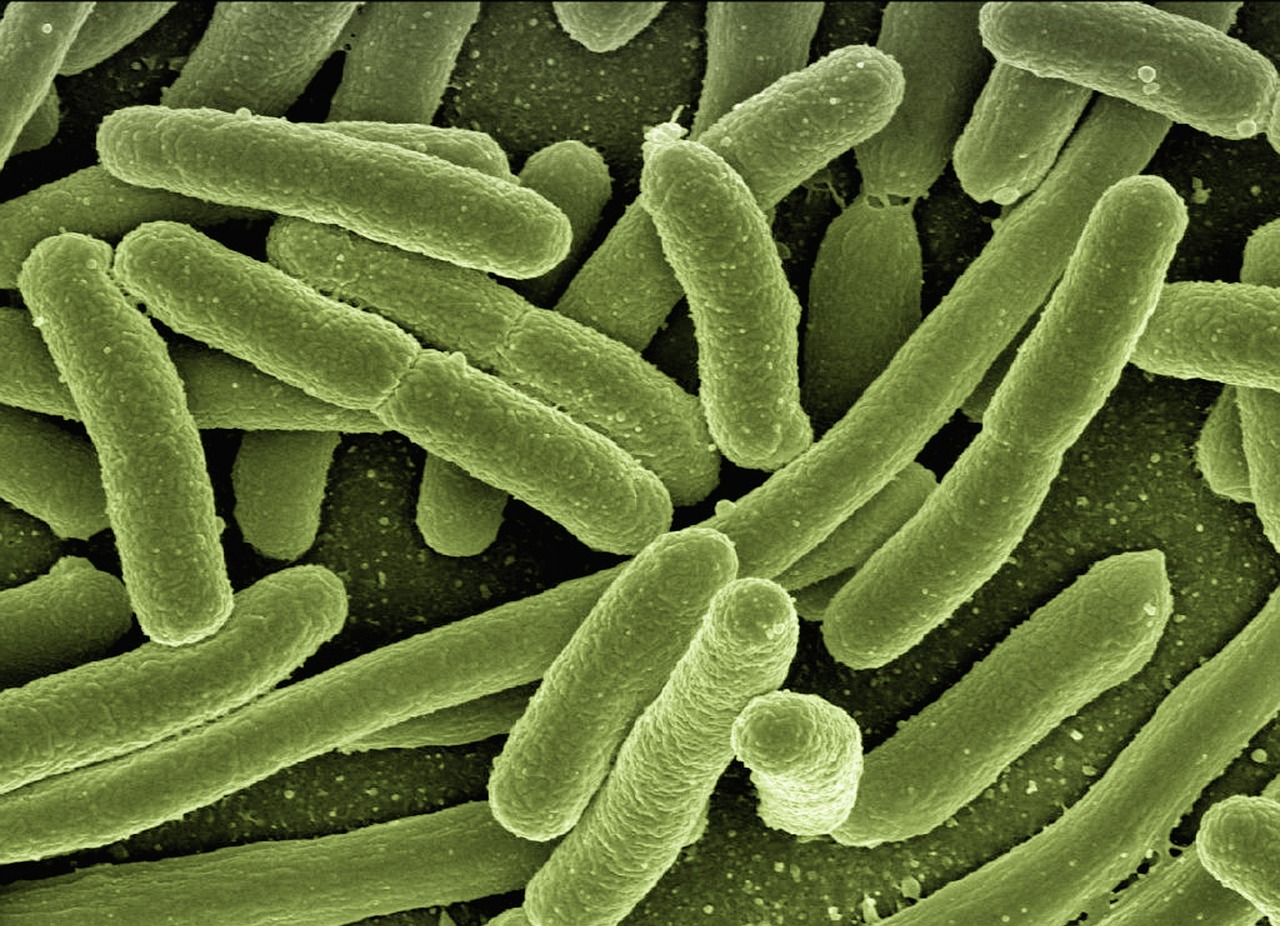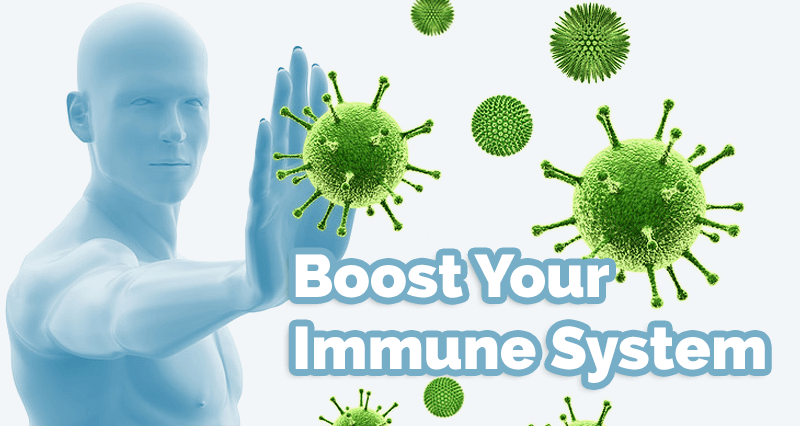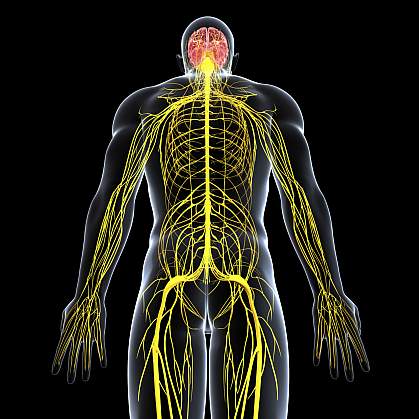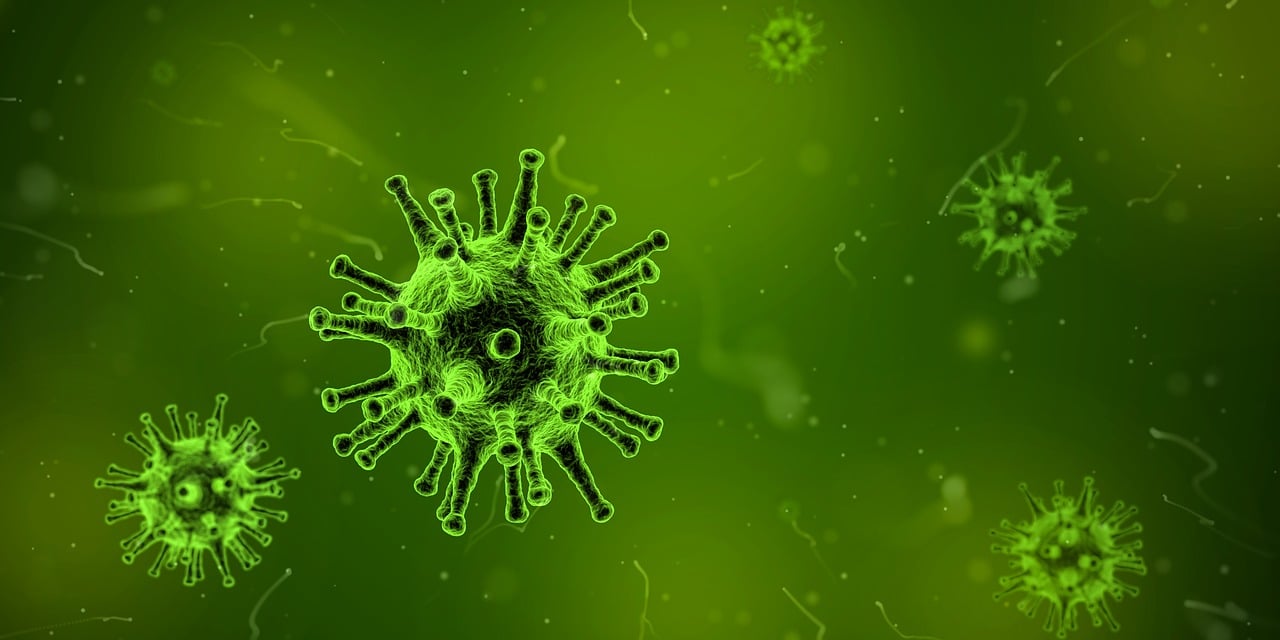Table of Contents
Hygiene, often associated with cleanliness, plays a pivotal role in maintaining good health. Beyond the aesthetic benefits, it significantly contributes to the proper functioning of our immune system. In this article, we explore the intricate relationship between hygiene and immune function, shedding light on how cleanliness supports our body’s defense mechanisms.
The Fundamental Connection: Hygiene and Immune Function
The connection between hygiene and immune function runs deeper than surface-level cleanliness; it is a fundamental aspect of our well-being. This intricate relationship is often underestimated but holds profound implications for our health. Let’s delve further into how hygiene serves as a bedrock for our immune system’s efficiency and effectiveness:
1. Barrier Against Pathogens
Our body’s first line of defense against pathogens is the physical barriers, including the skin and mucous membranes. Effective hygiene practices ensure that these barriers remain intact and functional. For instance, clean and intact skin is less susceptible to breaches that could allow pathogens to enter the body.
2. The Role of Microbiota
The human body is home to trillions of microorganisms collectively known as the microbiota. These microorganisms play a pivotal role in training our immune system to recognize friend from foe. Proper hygiene practices, such as those that maintain a balanced gut microbiome, support this educational process.
3. Immunomodulation Through Cleanliness
Hygiene doesn’t merely protect against harmful pathogens; it also modulates our immune response. The absence of constant pathogenic challenges allows our immune system to function optimally when needed. An immune system that is always on high alert due to continuous pathogen exposure may become overactive, leading to chronic inflammation and autoimmune conditions.
4. Respiratory and Hygiene Etiquette
In the context of respiratory health, hygiene practices like covering the mouth and nose when coughing or sneezing significantly reduce the transmission of respiratory viruses. This simple act not only prevents infections in individuals but also collectively reduces the burden on healthcare systems during outbreaks.
5. Psychological Impact
The mental and emotional aspects of hygiene should not be overlooked. Feeling clean and fresh often translates to improved mental well-being. Reduced stress and anxiety, in turn, support a balanced immune response. It’s a holistic cycle where good hygiene practices can positively influence our overall health.
6. Preventing Chronic Infections
Maintaining hygiene is essential for preventing chronic infections that can weaken the immune system over time. For individuals with conditions such as diabetes or HIV, preventing additional health complications through hygiene becomes even more critical.
7. Vaccination Reinforcement
Vaccination, a cornerstone of preventive medicine, relies on a well-functioning immune system. Hygiene practices indirectly support vaccination efforts by reducing the risk of pathogen exposure. This allows vaccines to work more effectively and confer long-term immunity.
8. Personal Responsibility and Global Impact
On a broader scale, individual hygiene practices can collectively impact public health. A population that prioritizes hygiene not only experiences lower disease burdens but also contributes to community immunity, protecting vulnerable individuals who cannot mount a robust immune response.
In essence, the intricate relationship between hygiene and immune function is multi-dimensional and extends beyond simple cleanliness. It is about optimizing our body’s natural defenses, promoting a balanced immune response and reducing the burden of preventable diseases. While hygiene practices are often considered mundane or routine, their profound impact on our health and well-being cannot be overstated. Hygiene is, indeed, a cornerstone of a healthier, more resilient society.
Additionally, you can find further information on this topic by visiting this page: HIV and Nutrition and Food Safety | NIH
The Immune System: Our Body’s Defense
Before delving into the connection between hygiene and the immune system, it’s crucial to understand the immune system’s role. It’s our body’s defense mechanism against harmful invaders such as bacteria, viruses and other pathogens. A robust immune system is vital for preventing illnesses and recovering from infections.
Before delving into the connection between hygiene and the immune system, it’s crucial to understand the immune system’s role as the stalwart guardian of our health. Think of it as your body’s own dedicated defense force, tirelessly working to protect you against a vast array of harmful invaders, including bacteria, viruses, fungi and other pathogens. Here’s a deeper exploration of the remarkable role played by our immune system in safeguarding our well-being:
1. Surveillance and Vigilance:
Our immune system is like an ever-watchful sentry, constantly patrolling the body to detect any signs of trouble. It has a network of cells, proteins and tissues that act as “security personnel” on high alert. When these sentinels encounter foreign invaders, they sound the alarm and initiate a swift and coordinated response.
2. Defense Against Pathogens:
Pathogens such as bacteria, viruses and fungi are the culprits behind various illnesses. The immune system’s primary mission is to identify these intruders and neutralize them. It does so through a combination of methods, including producing antibodies that bind to and disarm pathogens, activating white blood cells to attack and consume invaders and orchestrating inflammation responses to contain and eliminate threats.
3. Memory and Adaptation:
One of the most extraordinary aspects of the immune system is its ability to remember past encounters with pathogens. When it successfully defeats an invader, it retains a memory of the specific pathogen. This memory allows for a quicker and more effective response if the same pathogen tries to invade again in the future. This adaptive capability forms the basis of immunity and vaccination.
4. Immune System and Hygiene:
Now, let’s consider the link between hygiene and the immune system. Good hygiene practices, such as regular handwashing, cleanliness and proper food handling, are essential for reducing the burden on the immune system. When we practice good hygiene, we minimize the exposure to harmful pathogens in our environment. This, in turn, reduces the workload of our immune system, allowing it to focus on more critical threats and maintain a state of readiness.
5. Prevention is Key:
Maintaining good hygiene is a preventive measure that significantly reduces the risk of infections. By practicing hygiene, we create barriers that block pathogens from entering our bodies. Handwashing, for example, prevents the transfer of germs from contaminated surfaces to our mouths and eyes. Proper food hygiene prevents foodborne illnesses and cleanliness helps reduce skin infections.
6. Supporting a Strong Immune System:
While hygiene is essential for reducing the risk of infection, it’s also important to note that our immune system needs to stay active and alert. Overly sterile environments can limit its exposure to harmless microbes that help “train” the immune system. Therefore, striking a balance between cleanliness and allowing controlled exposure to microbes can support a strong and resilient immune system.
In conclusion, understanding the pivotal role of the immune system in defending our health highlights the importance of maintaining good hygiene practices. By practicing hygiene, we not only reduce our susceptibility to illnesses but also support our immune system in its relentless mission to keep us healthy. It’s a symbiotic relationship that underscores the profound connection between hygiene and our overall well-being.
For a comprehensive look at this subject, we invite you to read more on this dedicated page: White Blood Cells: Types, Function & Normal Ranges

How Hygiene Supports Immune Function
Proper hygiene practices are a cornerstone of good health and a strong immune system. Here’s how cleanliness aids in bolstering our body’s defense mechanisms:
Proper hygiene practices are not just a matter of cleanliness; they are the bedrock of good health and play a pivotal role in fortifying our body’s immune system. Maintaining a high standard of personal and environmental cleanliness contributes to the body’s ability to ward off illnesses and stay resilient against various health threats. Here’s how these practices serve as the frontlines of defense for our immune system:
Preventing Infections: One of the primary functions of proper hygiene is to prevent infections. Regular handwashing, for instance, is a highly effective way to remove harmful microorganisms, such as bacteria and viruses, from our hands. By doing so, we reduce the risk of these pathogens entering our bodies through the mouth, nose or eyes, which is a common route of infection transmission.
Reducing Disease Transmission: Maintaining hygiene in our surroundings and personal spaces helps minimize the transmission of diseases. Regular cleaning and disinfecting of commonly touched surfaces, such as doorknobs, light switches and countertops, reduce the chances of pathogens lingering and spreading from one person to another.
Enhancing Immune System Readiness: When we practice good hygiene, our immune system doesn’t have to work as hard to combat everyday pathogens. This allows our immune cells to remain vigilant and ready to respond to more serious threats when they arise, strengthening our overall immune response.
Minimizing Inflammation: Proper hygiene can help prevent minor skin infections and irritations. Infections and inflammation in the body can divert the immune system’s resources and attention away from other potential threats. By reducing the incidence of skin issues through cleanliness, we allow the immune system to focus on more significant challenges.
Promoting Respiratory Health: Good hygiene practices like covering one’s mouth and nose when coughing or sneezing can significantly reduce the spread of respiratory illnesses. This not only protects us but also those around us. In turn, this collective effort lessens the burden on healthcare systems during outbreaks.
Supporting Overall Wellness: Maintaining hygiene in areas such as dental care and personal grooming can have a domino effect on our health. For example, regular brushing and flossing not only preserve oral health but can also reduce the risk of gum disease, which has been linked to systemic health issues like heart disease and diabetes.
Boosting Mental Health: Hygiene practices have a positive impact on mental health as well. Feeling clean and well-groomed enhances self-esteem and mental well-being. Reduced stress and anxiety can indirectly support the immune system by preventing chronic stress-related immune suppression.
Teaching Lifelong Habits: Instilling good hygiene practices in childhood lays the foundation for a lifetime of health-conscious choices. Children who learn the importance of cleanliness are more likely to carry these habits into adulthood, creating a culture of health-conscious individuals.
In conclusion, proper hygiene practices serve as a formidable shield for our immune system, preventing the entry and spread of harmful pathogens. By maintaining cleanliness in our personal and environmental spheres, we empower our body’s natural defense mechanisms to function optimally. It’s a simple yet incredibly effective way to promote good health, well-being and resilience against illness, ultimately contributing to a higher quality of life.
You can also read more about this here: Cleanliness in context: reconciling hygiene with a modern microbial …

Reducing Pathogen Exposure
Good hygiene practices like handwashing, regular bathing and cleaning our living spaces help minimize our exposure to pathogens. By keeping our environment clean and practicing personal hygiene, we reduce the likelihood of coming into contact with harmful microorganisms.
Indeed, good hygiene practices are foundational for safeguarding our health and well-being. Let’s delve deeper into the significance of these practices and their impact on minimizing exposure to pathogens:
Handwashing:
- Thorough Handwashing: Proper handwashing involves scrubbing hands with soap and warm water for at least 20 seconds. This routine effectively removes dirt, debris and harmful microorganisms that may be present on our hands.
- Disease Prevention: Handwashing is a simple yet powerful measure to prevent the transmission of infectious diseases. It significantly reduces the risk of common illnesses like colds, flu and gastrointestinal infections.
Regular Bathing:
- Removal of Sweat and Dirt: Regular bathing is essential for cleansing the skin, removing sweat, oils and environmental pollutants. This not only maintains personal freshness but also prevents skin conditions and odor.
- Microbial Control: Bathing helps control the population of microorganisms on the skin’s surface. While not all bacteria are harmful, maintaining a balanced skin microbiome is crucial for skin health.
Cleaning Living Spaces:
- Pathogen Removal: Cleaning and disinfecting our living spaces, especially frequently touched surfaces like doorknobs, countertops and light switches, help remove pathogens that may linger on these surfaces.
- Reduction of Allergens: Cleaning also reduces allergens such as dust mites and pet dander, contributing to a healthier indoor environment for individuals with allergies or respiratory conditions.
Reducing Cross-Contamination:
- Kitchen Hygiene: In the kitchen, practicing good hygiene prevents cross-contamination of food. Proper food handling, cleaning utensils and surfaces and cooking to safe temperatures reduce the risk of foodborne illnesses.
Environmental Hygiene:
- Public Spaces: Maintaining hygiene in public spaces, such as schools, offices and healthcare facilities, is crucial for preventing the spread of infectious diseases. Regular cleaning and disinfection protocols play a key role in these settings.
Personal Responsibility:
- Individual and Collective Well-being: Good hygiene practices are not only a matter of personal responsibility but also a collective one. By practicing hygiene, individuals contribute to the well-being of their communities by reducing the spread of diseases.
Healthcare Hygiene:
- In Healthcare Settings: In healthcare settings, strict hygiene protocols are critical to prevent healthcare-associated infections. Healthcare workers practice rigorous hand hygiene and surfaces and medical equipment are regularly disinfected.
Resilience Against Epidemics:
- Epidemic Preparedness: In times of epidemics and pandemics, the importance of good hygiene practices becomes even more evident. Simple acts like handwashing and wearing masks can significantly slow the spread of infectious diseases.
In summary, good hygiene practices are fundamental not only for personal health but also for public health. They act as a barrier that minimizes our exposure to pathogens, preventing illnesses and contributing to the overall well-being of society. By instilling and maintaining these practices in our daily lives, we play an active role in promoting a healthier and safer environment for ourselves and those around us.
For a comprehensive look at this subject, we invite you to read more on this dedicated page: Cleanliness in context: reconciling hygiene with a modern microbial …

Preventing Infections
Effective hygiene, such as regular handwashing with soap, is one of the most potent measures for preventing infections. Pathogens often enter our bodies through our hands when we touch our face or consume food. Keeping our hands clean significantly lowers the risk of infection.
Effective hygiene, particularly the simple act of regular handwashing with soap, stands as one of the most potent and accessible measures for preventing infections. This practice not only helps safeguard our individual health but also plays a pivotal role in public health on a global scale. Here, we delve deeper into why hand hygiene is a cornerstone of infection prevention and its broader implications:
1. Barrier Against Pathogens: Our hands are constant conduits for contact with the external world, touching surfaces that may harbor harmful pathogens. These pathogens can easily transfer to our hands and, subsequently, enter our bodies when we touch our face, nose, mouth or eyes. Regular handwashing creates a protective barrier that reduces the risk of these pathogens gaining entry into our system.
2. Disease Transmission Reduction: Hand hygiene has a profound impact on reducing the transmission of infectious diseases, both at an individual and community level. In settings such as healthcare facilities, schools and households, the practice of proper handwashing significantly curtails the spread of viruses and bacteria. This, in turn, minimizes the burden of illness on healthcare systems and society as a whole.
3. Global Public Health: Hand hygiene is a fundamental pillar of global public health initiatives. The simple act of washing hands with soap is a cost-effective intervention that has the potential to save millions of lives, particularly in regions with limited access to healthcare. It is a key strategy in combating diseases like cholera, diarrhea and respiratory infections, which disproportionately affect vulnerable populations.
4. Pandemic Preparedness: In the context of pandemics, such as the COVID-19 outbreak, hand hygiene emerged as a critical defense. The pandemic underscored the urgency of handwashing in preventing the spread of respiratory viruses. The widespread adoption of this practice became a central public health message, highlighting the pivotal role of individual actions in collective well-being.
5. Behavioral Nudge: Beyond its immediate health benefits, handwashing with soap serves as a behavioral nudge toward other hygiene practices. When individuals establish a routine of hand hygiene, they become more conscious of cleanliness in general. This can lead to improved overall hygiene, such as regularly cleaning and disinfecting frequently touched surfaces.
6. Lifelong Skill: Teaching children the importance of handwashing instills a lifelong skill that contributes to their well-being and that of the communities they are part of. Early education on hand hygiene helps form good habits, making it more likely that individuals will continue practicing proper handwashing throughout their lives.
7. Environmental Impact: The impact of hand hygiene extends to the environment as well. While soap is essential for effective handwashing, choosing eco-friendly and biodegradable options minimizes the environmental footprint. This conscious choice aligns hygiene practices with sustainability, reflecting a broader awareness of interconnected global issues.
In conclusion, effective hand hygiene, particularly through regular handwashing with soap, is a universally accessible and powerful measure for preventing infections. It transcends individual health and has far-reaching implications for public health, global disease control and sustainability. As a practice deeply ingrained in our daily lives, handwashing is not just an act of personal protection but a collective responsibility that contributes to the well-being of individuals, communities and society as a whole.
To delve further into this matter, we encourage you to check out the additional resources provided here: HIV and Nutrition and Food Safety | NIH

Strengthening the Gut Microbiome
A clean and balanced diet, along with proper food hygiene, supports a healthy gut microbiome. A diverse and thriving gut microbiome plays a vital role in immune function. It helps regulate the immune response and defends against harmful pathogens.
Maintaining a clean and balanced diet, coupled with practicing proper food hygiene, forms the cornerstone of good health. Beyond simply providing essential nutrients, this dietary approach nurtures a thriving gut microbiome, which in turn, acts as a silent guardian of our immune system.
Nutritional Foundations:
A clean and balanced diet is like the conductor of a symphony, orchestrating the harmony of various nutrients that our body needs to function optimally. It ensures that we receive the vitamins, minerals and macronutrients required for every aspect of our well-being. This dietary foundation not only fuels our cells and tissues but also supports the diverse community of microorganisms residing in our gut.
The Microbiome’s Vital Role:
Our gut microbiome, composed of trillions of microorganisms, is a bustling ecosystem. It consists of bacteria, viruses, fungi and other microorganisms that play pivotal roles in our health. When our gut microbiome is diverse and thriving, it acts as a shield, fortifying our immune system.
Regulating Immune Response:
A diverse microbiome helps regulate the immune response. It communicates with our immune cells, teaching them to distinguish between friendly and harmful invaders. This education is crucial in preventing unnecessary immune reactions, such as allergies or autoimmune diseases. Essentially, the microbiome serves as a teacher to our immune system, helping it recognize and respond appropriately to threats.
Defending Against Pathogens:
One of the microbiome’s primary functions is to create an environment where beneficial bacteria can flourish, crowding out harmful pathogens. This competitive exclusion limits the opportunities for harmful invaders to take hold in our digestive tract. Additionally, some gut bacteria produce antimicrobial compounds that directly inhibit the growth of harmful microorganisms, bolstering our defenses.
Enhancing Immune Function:
A healthy gut microbiome also plays a direct role in enhancing immune function. It produces molecules that stimulate the production of immune cells and antibodies, further strengthening our immune response. In essence, a thriving microbiome acts as an ally, equipping our immune system with the tools it needs to fend off threats effectively.
In conclusion, the connection between a clean and balanced diet, proper food hygiene and a robust gut microbiome cannot be overstated. Nurturing a diverse and thriving microbiome is akin to fortifying our immune system’s first line of defense. It is a testament to the profound impact our dietary choices can have on our overall health, emphasizing the importance of mindful eating and hygiene practices in supporting our body’s innate ability to protect and maintain its well-being.
Looking for more insights? You’ll find them right here in our extended coverage: Strengthening the Immune System and Reducing Inflammation and …

Supporting Respiratory Health
Practices like covering your mouth and nose when sneezing or coughing and regularly cleaning and disinfecting shared spaces can help reduce the transmission of respiratory viruses. This is particularly relevant in contexts like cold and flu season and during pandemics.
In the realm of personal hygiene and public health, simple yet effective practices can be the first line of defense against the spread of respiratory viruses. Beyond covering your mouth and nose when sneezing or coughing and regular cleaning and disinfecting of shared spaces, there are additional layers of protection and considerations to keep in mind.
Hand Hygiene: One of the most common ways that respiratory viruses spread is through contact. Touching contaminated surfaces and then touching your face can introduce these viruses into your system. Frequent handwashing with soap and water for at least 20 seconds or the use of hand sanitizer when soap is not available, can significantly reduce the risk. Encouraging others to do the same and setting up hand sanitizing stations in communal areas can promote collective well-being.
Proper Mask Usage: During respiratory virus outbreaks, wearing masks can be a crucial measure to prevent transmission, especially in crowded or indoor settings. Ensuring that masks cover both the mouth and nose and are worn consistently can greatly reduce the risk of both transmitting and contracting viruses. Additionally, choosing masks with multiple layers and a good fit can enhance their effectiveness.
Ventilation: Adequate ventilation in shared spaces is another critical factor. Proper airflow can help disperse airborne particles, reducing the concentration of viruses in the air. Whenever possible, open windows and doors to promote natural ventilation and consider using air purifiers equipped with HEPA filters to improve indoor air quality.
Vaccination: Vaccination remains one of the most powerful tools in the fight against respiratory viruses. Encouraging individuals to get vaccinated when vaccines are available for specific viruses, such as the flu or COVID-19, can help create herd immunity and limit the spread of these infections.
Educational Initiatives: Beyond individual actions, public health campaigns and educational initiatives play a vital role in spreading awareness and fostering responsible behavior. These efforts can empower communities to take collective action, reinforcing the importance of personal hygiene practices during seasons of heightened risk and ongoing pandemics.
By extending our efforts beyond the basics of covering sneezes and cleaning shared spaces, we can create a comprehensive defense against respiratory viruses. These measures not only protect our own health but also contribute to the well-being of our communities, particularly in challenging times like cold and flu seasons or during global health crises.
To delve further into this matter, we encourage you to check out the additional resources provided here: Asthma: The Hygiene Hypothesis | FDA

Managing Chronic Conditions
Maintaining proper hygiene is essential for individuals with chronic health conditions. It helps prevent complications and infections that could exacerbate their conditions, keeping their immune system better equipped to manage their health.
For individuals living with chronic health conditions, the importance of maintaining proper hygiene cannot be overstated. It serves as a crucial pillar of their overall health management, providing a shield against potential complications and infections that could further burden their already compromised health. Here’s a deeper exploration of why hygiene is paramount for those with chronic conditions:
Infection Prevention: Many chronic health conditions, such as diabetes or autoimmune disorders, can weaken the immune system’s defenses. Proper hygiene practices act as a first line of defense against infections that individuals with compromised immune systems are more susceptible to. Simple acts like regular handwashing and keeping wounds clean can significantly reduce the risk of infections that might otherwise lead to severe complications.
Enhanced Immune Response: Good hygiene helps the immune system function optimally. By reducing the burden of harmful bacteria and pathogens, individuals with chronic conditions can help their immune system allocate its resources more effectively. This can improve the immune response, making it better equipped to manage the underlying chronic condition and any additional health challenges that may arise.
Preventing Disease Progression: Certain chronic conditions, such as heart disease or lung disorders, can progress more rapidly when infections are present. Maintaining hygiene minimizes the risk of respiratory and other infections, potentially slowing down the progression of these conditions and preserving individuals’ quality of life.
Medication Management: Many individuals with chronic conditions rely on medications to manage their health. Proper hygiene, particularly when handling medications or medical devices like insulin pens, helps prevent contamination and ensures the effectiveness of these treatments.
Mental and Emotional Well-being: Living with a chronic condition can be emotionally challenging. Good personal hygiene practices, including maintaining cleanliness and grooming, can boost self-esteem and contribute to overall mental and emotional well-being. Feeling clean and presentable can have a positive impact on one’s self-perception and confidence.
Reduced Hospitalizations: By diligently practicing proper hygiene, individuals with chronic conditions can reduce the frequency of hospitalizations due to preventable infections. This not only helps manage healthcare costs but also enhances their overall quality of life by minimizing disruptions caused by hospital stays.
Healthy Lifestyle Support: Hygiene is an integral part of a healthy lifestyle. For individuals with chronic conditions, adopting a holistic approach to health that includes good hygiene practices complements their medical treatment and supports their overall well-being.
In conclusion, maintaining proper hygiene is a vital component of managing chronic health conditions. It is a proactive measure that can prevent complications, enhance the immune response and improve the overall quality of life for individuals living with these conditions. By incorporating good hygiene practices into their daily routines, individuals with chronic health conditions empower themselves to better manage their health and reduce the impact of their conditions on their lives.
If you’d like to dive deeper into this subject, there’s more to discover on this page: Prevention Strategies for Seasonal Influenza in Healthcare Settings …

Mental and Emotional Well-being
Good hygiene practices can positively impact mental and emotional well-being. Feeling clean and fresh can boost self-esteem and reduce stress, which, in turn, supports a balanced immune response.
Good hygiene practices can positively impact mental and emotional well-being in profound ways. The connection between our physical state and our emotional state is undeniable and feeling clean and fresh is a simple yet effective way to nurture this symbiotic relationship.
When you maintain good hygiene, you not only keep your body free from harmful germs and odors but also send a powerful message to your mind. This message is one of self-care and self-respect. The feeling of cleanliness can boost self-esteem, reinforcing the idea that you value and prioritize your own well-being.
Moreover, the act of taking care of your body through proper hygiene rituals can be a form of self-soothing. The routine itself can be meditative and calming, providing moments of mindfulness in your daily life. This helps reduce stress and anxiety, as it allows you to focus on the present moment and disconnect from the worries of the day.
Reducing stress, in turn, plays a crucial role in supporting a balanced immune response. Chronic stress weakens the immune system, making you more susceptible to illnesses. By practicing good hygiene and managing stress levels, you create a positive feedback loop that enhances your overall health and well-being.
In essence, good hygiene practices are not just about physical cleanliness; they’re a holistic approach to nurturing your body, mind and emotions. Embracing these practices can lead to a more balanced and resilient you, better equipped to face the challenges of life with confidence and vitality.
If you’d like to dive deeper into this subject, there’s more to discover on this page: Using social and behavioural science to support COVID-19 …
Vaccination and Immunization
While not directly related to personal hygiene, vaccination and immunization programs are crucial in bolstering the immune system. These practices help the body recognize and fight specific pathogens, providing immunity against various diseases.
While personal hygiene primarily focuses on practices like handwashing, bathing and dental care, it’s important to recognize that maintaining good health goes beyond these immediate routines. Vaccination and immunization programs stand as powerful allies in our quest for overall well-being. These programs, though not directly tied to hygiene, play an integral role in strengthening our immune systems and safeguarding us against a myriad of diseases.
Here’s why vaccination and immunization are pivotal components of a healthy life:
Disease Prevention: Vaccination and immunization are key tools in the prevention of infectious diseases. They expose the immune system to harmless or weakened versions of pathogens, enabling it to develop an immune response without causing the disease itself. This preparation allows the body to fight off the real pathogen more effectively if encountered in the future.
Community Immunity: Widespread vaccination not only protects individuals but also contributes to community immunity, also known as herd immunity. When a significant portion of a population is immune to a disease, it becomes harder for the disease to spread. This helps safeguard vulnerable individuals who may be unable to receive vaccines due to medical reasons.
Lifesaving Impact: Vaccination has played a critical role in eradicating or significantly reducing the prevalence of many deadly diseases, such as smallpox and polio. It continues to save countless lives each year by preventing serious illness and complications.
Quality of Life: Vaccination doesn’t just prevent death; it also prevents suffering. By reducing the incidence of diseases like measles, mumps and rubella, vaccines protect individuals from painful and debilitating conditions, improving their overall quality of life.
Global Health: Immunization programs are central to global health initiatives. Organizations like the World Health Organization (WHO) and UNICEF work tirelessly to ensure that vaccines are accessible to people in all corners of the world, addressing health disparities and promoting health equity.
Pandemic Preparedness: In the face of emerging infectious diseases and pandemics, vaccines have proven to be vital tools in rapid response efforts. The development and distribution of COVID-19 vaccines, for instance, have played a pivotal role in controlling the spread of the virus.
Research and Innovation: Continued investment in vaccine research and development leads to advancements in our understanding of immunology and the creation of new vaccines. These innovations have the potential to protect against a broader range of diseases in the future.
In essence, vaccination and immunization programs extend the concept of personal hygiene to a collective level. They empower individuals and communities to proactively defend against diseases, promoting not only individual health but also global public health. As we navigate a world with evolving health challenges, these programs remain an essential cornerstone of our overall well-being and our commitment to a healthier future for all.
Should you desire more in-depth information, it’s available for your perusal on this page: Statement for healthcare professionals: How COVID-19 vaccines are …

The Balance of Hygiene
While cleanliness is essential for supporting immune function, it’s equally important to strike a balance. Excessive or obsessive hygiene practices can disrupt the natural balance of the microbiome and weaken the immune system’s ability to distinguish between harmful and beneficial microorganisms. Thus, a balanced approach to hygiene is key to maintaining optimal immune function.
Maintaining a balanced approach to hygiene is a cornerstone of overall well-being. While cleanliness is undoubtedly vital for supporting immune function, it’s crucial to recognize that our bodies thrive when they interact with a diverse array of microorganisms. Here’s why finding that equilibrium is paramount:
Microbiome Harmony: Our bodies are hosts to trillions of microorganisms, collectively known as the microbiome. These microorganisms play a pivotal role in digestion, nutrient absorption and even immune response. An excessive focus on hygiene can disrupt this harmonious relationship by eliminating beneficial bacteria along with harmful ones.
Immune System Resilience: The immune system is like a well-trained sentinel. It needs exposure to various pathogens to learn and adapt effectively. Excessive hygiene practices can leave the immune system under-stimulated, potentially rendering it less responsive when confronted with genuine threats.
Hygiene Hypothesis: The “hygiene hypothesis” suggests that reduced exposure to microbes in early childhood due to overly clean environments may contribute to an increased risk of allergies and autoimmune disorders. Striking a balance between cleanliness and allowing controlled exposure to microbes can help prevent these conditions.
Skin Health: Excessive washing and sanitizing can strip the skin of its natural oils and disrupt its protective barrier. This can lead to dryness, irritation and increased susceptibility to skin conditions. A balanced hygiene routine that includes moisturizing and protection is crucial for skin health.
Mental Health: Obsessive hygiene practices can also take a toll on mental well-being. Constantly worrying about cleanliness can lead to anxiety and even obsessive-compulsive behaviors. Striving for a balanced approach helps alleviate unnecessary stress.
Environmental Impact: Overuse of antibacterial products and disposable hygiene items can have negative environmental consequences, contributing to pollution and waste. A balanced approach to hygiene considers both personal and environmental health.
Community and Social Interaction: Maintaining a balanced approach to hygiene is also considerate of social norms and expectations. Respecting cultural practices and personal boundaries fosters positive social interactions.
In essence, the pursuit of cleanliness should be balanced with an understanding of the complexities of the human body and its relationship with the microbial world. Striking the right equilibrium between hygiene practices that protect us from harmful pathogens and those that allow our bodies to interact with beneficial microorganisms is essential for maintaining optimal immune function, overall health and a thriving microbiome.
To delve further into this matter, we encourage you to check out the additional resources provided here: Oral health: A window to your overall health – Mayo Clinic
Hygiene and health are intrinsically linked, with cleanliness serving as a cornerstone of a robust immune system. By practicing good personal and environmental hygiene, we reduce our risk of infections, support a healthy gut microbiome and strengthen our body’s defenses against diseases. While hygiene is essential, it’s important to strike a balance, as overly sterile environments can weaken our immune system’s ability to respond effectively. Ultimately, maintaining proper hygiene is a powerful tool in safeguarding our health and well-being.
The intricate relationship between hygiene and health is a testament to the remarkable way our bodies interact with the world around us. Cleanliness is not just a superficial concept; it’s a fundamental element in the intricate dance of our immune system. When we embrace good personal and environmental hygiene practices, we are actively investing in our well-being and resilience against diseases.
At the core of this connection lies the immune system, our body’s first line of defense against pathogens. A clean environment and proper personal hygiene are our contributions to this defense mechanism. By practicing regular handwashing, maintaining clean living spaces and practicing good food safety, we reduce our exposure to harmful bacteria, viruses and other microorganisms. This, in turn, lowers our risk of infections and illnesses, helping us stay healthy and vibrant.
Furthermore, hygiene extends its influence to our gut health, an often overlooked aspect of our overall well-being. A balanced and diverse gut microbiome, comprising trillions of bacteria, plays a pivotal role in our digestion, nutrient absorption and even the regulation of our immune system. Good hygiene practices, such as washing fruits and vegetables thoroughly and following proper food handling guidelines, help protect this delicate ecosystem. When our gut microbiome is in harmony, our immune system receives vital support, making it more effective at identifying and combatting intruders.
However, it’s crucial to strike a balance in our pursuit of cleanliness. While proper hygiene is undoubtedly essential, excessively sterile environments can have unintended consequences. Overzealous use of antibacterial products and constant exposure to sanitized environments may hinder the development of our immune system. It’s through exposure to a variety of microorganisms, especially in childhood, that our immune system learns to differentiate between harmful invaders and harmless substances. This education is essential for building a robust defense system.
In essence, maintaining proper hygiene is like nurturing a symbiotic relationship between us and the microbial world. It’s about fostering an environment where cleanliness supports our health without compromising the development and resilience of our immune system. Striking this balance empowers us to lead healthy lives, with robust defenses against diseases.
As we navigate the complexities of hygiene and health, it’s essential to remember that our bodies are marvels of adaptation and equilibrium. By practicing good personal and environmental hygiene with mindfulness, we contribute to our overall well-being while honoring the intricate dance between cleanliness and the immune system. In this harmonious partnership, we find the path to a healthy and vibrant life.
Explore this link for a more extensive examination of the topic: Asthma: The Hygiene Hypothesis | FDA
More links
Looking for more insights? You’ll find them right here in our extended coverage: The ‘hygiene hypothesis’ for autoimmune and allergic diseases: an …
